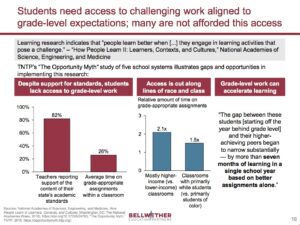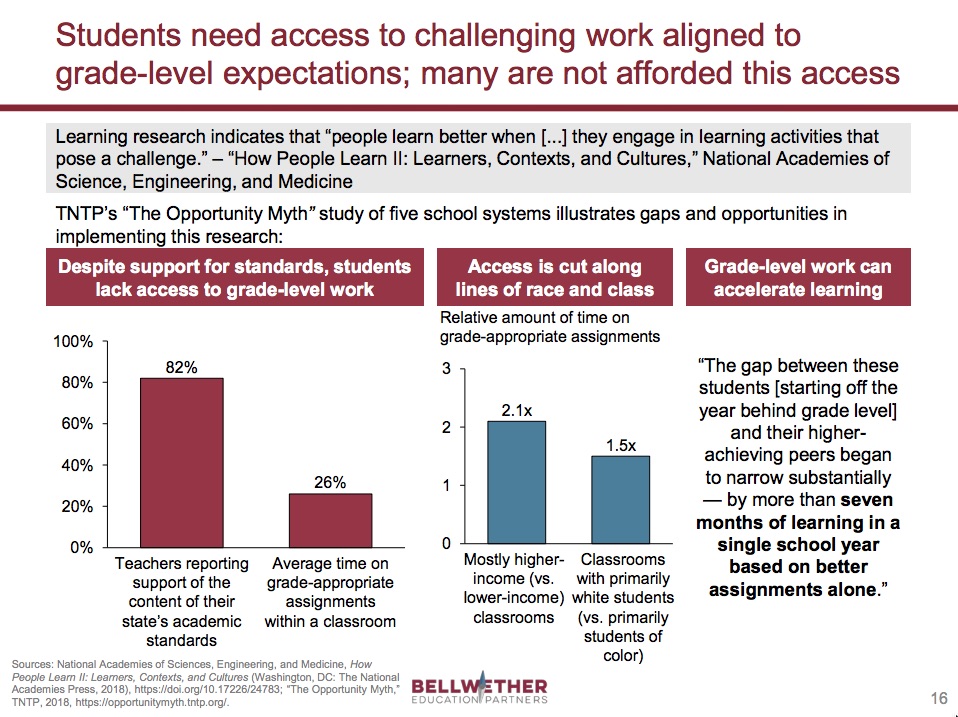TNTP recently found that in 40% of classrooms serving a majority of students of color, students never received a single grade-level assignment. How can education accelerate learning if grade-appropriate assignments aren’t even being made available?
For several years, education innovators have debated which approach to take in response to this problem: technology-driven learning designed to meet students where they are — or whole-course curriculum that assumes students are already performing at grade-level. To put it more simply: personalized learning versus academic rigor.
But instead of debating these innovations and their efficacy, the educational equity movement should advance a collective effort to meaningfully lead to equitable outcomes for Black, Latino, and Native students, and students affected by poverty. The reality is that any solution to address learning gaps will require a concerted combination of efforts, not siloed approaches.
Last spring, a team at Bellwether Education Partners deeply researched the shifts that need to occur in the field so that students with significant learning gaps access educational systems, schools, and classrooms that enable rigorous, differentiated learning.
 And in a new resource I co-authored with Lauren Schwartze and Amy Chen Kulesa, we show that there is no silver bullet. It will take time, energy, focus, innovation, and collaborative efforts across the sector that involve:
And in a new resource I co-authored with Lauren Schwartze and Amy Chen Kulesa, we show that there is no silver bullet. It will take time, energy, focus, innovation, and collaborative efforts across the sector that involve:
- Practice-oriented research that brings leaders and teachers to the table in ways that truly take into account and solve for real problems
- Systems-level vision, strategy, and decision-making to eliminate barriers that prevent progress
- Instructional materials designed for rigorous, differentiated learning, and materials that most likely leverage technology and data in sophisticated and useful ways
- Coherent, content-embedded, and practice-focused leader and teacher development
“Unfinished: Insights From Ongoing Work to Accelerate Outcomes for Students With Learning Gaps,” released last week, examines the research and builds toward a recommendation for future work. We hope you’ll take a look.
